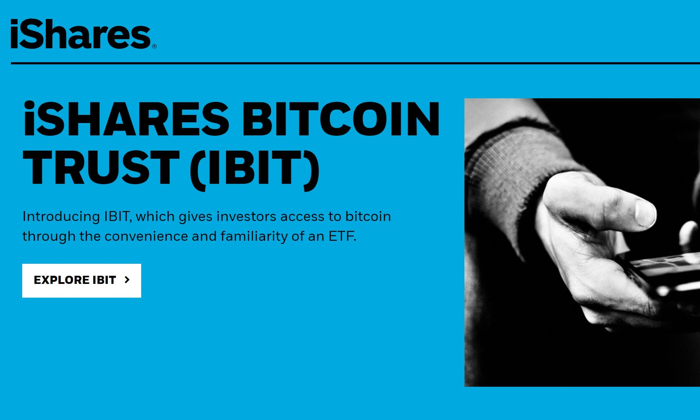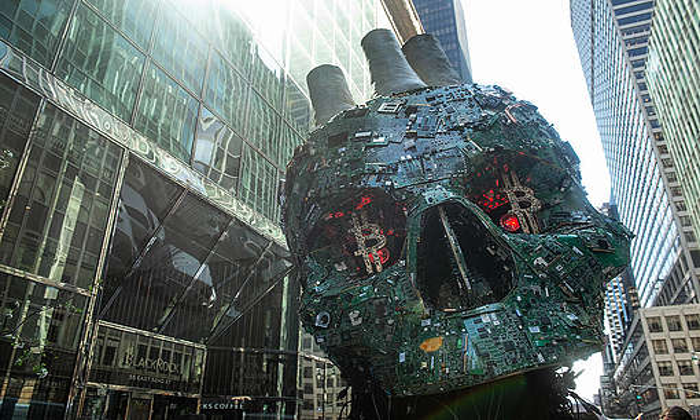In a surprising turn of events, OpenAI has filed a countersuit against Elon Musk, alleging that the billionaire has orchestrated a concerted effort to tarnish the organization’s reputation. The legal documents, released recently, outline accusations involving Musk’s false takeover bid and claims that his actions intensified following the unprecedented success of ChatGPT. OpenAI’s lawsuit comes at a pivotal moment for the AI firm, which has gained overwhelming popularity, thrusting it into the spotlight and magnifying the allegations against Musk. The countersuit not only reflects the ongoing tensions between Musk and OpenAI but also highlights the broader implications of his accusations regarding the organization’s shift from a nonprofit model to a capped-profit structure. With the stakes higher than ever, this legal battle not only involves the future of OpenAI but also poses significant questions about the integrity and trajectory of AI advancements in the tech landscape.
In a dramatic legal development, the renowned artificial intelligence organization behind the popular ChatGPT platform has initiated legal proceedings against its co-founder Elon Musk. This countersuit raises serious concerns about the billionaire’s alleged campaign aimed at undermining the firm’s credibility, especially after its remarkable achievements in AI technology. The allegations paint a complex picture of rivalry, with Musk reportedly attempting to leverage his vast influence while launching competing ventures. As the case unfolds, the spotlight will not only be on the claims of misinformation and reputation damage but also on the broader discourse surrounding the evolution of OpenAI from its original nonprofit intentions to a model that includes for-profit elements. This conflict captures a pivotal moment in the AI industry, as it navigates the fine line between innovation and ethical considerations.
Understanding the OpenAI Lawsuit Against Elon Musk
The legal drama surrounding OpenAI and Elon Musk has taken a significant turn with the filing of a countersuit by OpenAI. This lawsuit highlights the contentious relationship between the organization and Musk, who has been vocal about his concerns and criticisms regarding the company’s transition from a nonprofit to a capped-profit model. OpenAI presents a detailed narrative, alleging that Musk’s actions constitute a deliberate campaign aimed at undermining its reputation, particularly in light of the global triumphs of ChatGPT. These allegations are not merely anecdotal but part of a broader discourse on the ethical implications of AI’s evolution.
As the countersuit unfolds, it reveals the intricate dynamics of the tech industry, wherein alliances and rivalries can significantly influence public perception. OpenAI’s claims that Musk initiated a false takeover bid serve to underline the competitive tensions between major figures in the AI sector. Furthermore, the accusations extend beyond mere business rivalry: they illuminate the complexities of balancing innovation with ethical considerations in an age where AI technology is rapidly advancing. The outcome of this lawsuit could have far-reaching implications for both OpenAI and Musk’s ventures.
Elon Musk Allegations: A Reflection on AI Ethics
The allegations against Elon Musk are serious and reflect a larger conversation about ethics in the artificial intelligence landscape. In its countersuit, OpenAI accuses Musk of engaging in actions that are not only competitive but also intentionally negative toward its reputation, particularly by leveraging his massive communication platforms. This raises thought-provoking questions about the responsibilities of influential figures in the tech industry. Are they obligated to promote positive competition, or can they engage in tactics that might unfairly tarnish a competitor’s image?
The implications of Musk’s alleged tactics resonate beyond just OpenAI; they speak to the moral responsibilities of technology leaders in an ever-evolving landscape. As AI continues to integrate into everyday life and businesses, how leaders communicate about each other matters deeply. This situation could serve as a catalyst for discussions about the need for more transparent and ethical practices in how tech firms and their representatives engage with one another and the public.
The Impact of ChatGPT Success on OpenAI’s Trajectory
The staggering success of ChatGPT has undeniably placed OpenAI at the forefront of the AI revolution, transforming public expectations and market dynamics. This success has not only elevated the organization’s profile but has also made it a target for scrutiny and competition, particularly from figures like Elon Musk. The soaring popularity of the chatbot symbolizes a pivotal moment for OpenAI; however, it also seems to have prompted a reaction from Musk that OpenAI alleges has crossed the line into destructive territory.
The narrative surrounding ChatGPT highlights the dual nature of success within the tech industry. While it can lead to greater innovation and investment, it simultaneously invites rivalry and conflict. OpenAI’s countersuit sheds light on how the competitive pressures borne from success can sometimes lead to aggressive tactics from industry peers, as seen in Musk’s alleged maneuvers. How OpenAI navigates these challenges will be crucial for its ongoing reputation and the future of AI technology.
The Nonprofit to For-Profit Debate in AI Firms
At the heart of the conflict between OpenAI and Elon Musk is a significant debate regarding the transition of nonprofit organizations to for-profit structures. OpenAI’s planned shift to a capped-profit model has drawn fierce criticism from Musk, who argues that this change betrays the original mission of the organization. This tension illustrates the broader struggles within the tech industry to reconcile profit motives with ethical responsibilities, particularly when it comes to powerful technologies like AI.
OpenAI defends its decision by emphasizing that the nonprofit aspect remains intact, ensuring ongoing oversight and commitment to humanitarian goals. This argument counters Musk’s claims and highlights the complexities inherent in managing an organization that aims to balance financial viability with ethical considerations. The future direction of OpenAI hinges not just on this legal battle but also on public perceptions of its commitment to ethical AI development in light of its restructuring.
Evaluating Musk’s Influence and His Business Practices
Elon Musk’s approach to business has frequently involved bold moves and contentious statements, and the recent lawsuit has brought this into sharp focus. OpenAI alleges that Musk’s strategic positioning against them stems from an inability to cope with their successes, prompting him to create direct competition. This narrative raises essential questions about Musk’s influence and his business practices, particularly as they concern public trust and the ethical implications of leadership in the tech domain.
The evidence presented by OpenAI serves not only as a critique of Musk’s actions but also as a pivotal moment for examining how technology leaders navigate rivalries. The ease with which Musk disseminates his views via social media suggests an inherent power that must be handled responsibly. Evaluating Musk’s influence through the lens of this dispute might provide insights into the need for ethical accountability among tech leaders as they shape the future of innovation.
Legal Challenges and OpenAI’s Position
The legal landscape surrounding the OpenAI lawsuit underscores the complexities inherent in modern business operations, particularly within the competitive tech space. OpenAI has alleged various legal challenges initiated by Musk, citing incidents like his purported ‘sham bid’ and demands for internal records as tactics aimed to disrupt the organization. Such actions, if substantiated, could indicate a broader trend of competitive strategizing that blurs the lines of legality and ethics.
As OpenAI navigates this legal battle, its position becomes increasingly relevant not only for its own future but also for the precedent it sets within the industry. The resolution of these allegations will not only clarify the legality of Musk’s actions but also shine a light on the ethical ramifications of competitive behavior in tech. The attention this case has garnered could catalyze a much-needed dialogue about fair competition and the responsibilities of technology companies in managing rivalries.
The Future of AI and Public Perception
The outcome of the OpenAI countersuit against Elon Musk will undoubtedly shape public perception of both parties involved. AI’s rapid evolution and its integration into society raise critical questions about accountability and responsible leadership. OpenAI’s allegations against Musk suggest a battle not just for financial supremacy but also for public trust, which is essential for organizations at the forefront of transformative technologies. As AI systems like ChatGPT continue to influence everyday life, how the public perceives this legal struggle will matter immensely.
Furthermore, the public’s understanding of this complex legal battle will affect broader attitudes towards AI development and competition. The integrity and ethical framework that govern these technologies will be scrutinized as never before. OpenAI seeks to maintain its image amidst these challenges, and the dialogue surrounding these lawsuits will likely inform future policies and practices within the AI community, making the outcomes of this case critical for the industry’s path forward.
The Broader Implications for AI Firms and Ethical Standards
The legal conflict between OpenAI and Elon Musk serves as a case study in the broader implications for ethical standards in the tech industry, particularly among AI firms. As companies continue to navigate the murky waters of competitive practices, the stakes become higher not just for the parties involved, but also for the public that consumes these technologies. Musk’s allegations and OpenAI’s countersuit bring to the forefront the necessity for robust ethical guidelines that govern competitive behavior, especially within a field that has profound impacts on society.
Establishing clearer ethical boundaries will be vital in fostering a healthy environment for innovation in AI. The repercussions of this lawsuit extend far beyond the immediate parties, as they may prompt industry-wide discussions on accountability and transparency among tech giants. The outcome may lay the groundwork for a more conscientious approach to competition, ensuring that as AI technology evolves, it also adheres to standards that prioritize public welfare.
Conclusion: Monitoring the Evolving Legal Landscape
As the legal proceedings evolve between OpenAI and Elon Musk, it becomes imperative to monitor not just the outcome of this specific case, but also its implications for the larger technological landscape. The lawsuit encapsulates contemporary issues relating to competition, ethical practices, and the responsibilities of influential leaders within the tech community. Whether this leads to a re-evaluation of how industry rivals interact remains an open question that could significantly influence future practices.
OpenAI’s countersuit against Musk is more than a legal battle; it represents the crossroads of innovation, ethics, and accountability in the age of AI. Observers and stakeholders alike will benefit from staying informed about the developments in this case, as its resolution may herald a shift in how both established and emerging AI firms govern their interactions and uphold their commitments to ethical standards.
Frequently Asked Questions
What is OpenAI’s countersuit against Elon Musk about?
OpenAI has filed a countersuit against Elon Musk, alleging that he orchestrated a campaign to undermine the organization’s credibility following the success of ChatGPT. The lawsuit claims Musk’s actions included filing a false takeover bid and launching coordinated efforts to harm the AI firm’s reputation, as he attempted to build a competing AI firm.
Why did OpenAI choose to countersue Musk after his allegations?
OpenAI’s countersuit was prompted by what they describe as Musk’s strategic attacks against the organization, including false claims about their nonprofit transition to a for-profit model. The suit seeks to hold Musk accountable for damages incurred while he leveraged his influence to sway public opinion negatively against OpenAI.
How did Elon Musk react to OpenAI’s ChatGPT success?
According to OpenAI’s countersuit, Musk was unable to accept the significant success of ChatGPT and subsequently initiated efforts to destabilize the organization, culminating in his decision to create a competing AI venture and publicly criticize OpenAI’s leadership and strategy.
What specific tactics did Musk allegedly use to harm OpenAI’s reputation?
OpenAI claims that Musk used his platforms, including X, to spread negative assertions about the organization. The company alleges that these actions were part of a calculated plan to damage its credibility and hinder its growth in the fiercely competitive AI market.
What does OpenAI say about Musk’s accusations regarding its nonprofit status?
OpenAI counters Musk’s claims about its transition from a nonprofit to a for-profit model by asserting that the nonprofit will continue to operate and oversee the organization’s strategy. In fact, the nonprofit is expected to be among the best-resourced entities in the industry, contrary to Musk’s allegations.
Did Elon Musk attempt to take control of OpenAI?
Yes, Musk proposed a $97.4 billion bid to take control of OpenAI, which the organization firmly rejected due to concerns about Musk’s chaotic management style as demonstrated during his acquisition of Twitter in 2022.
What are the implications of the OpenAI countersuit for Elon Musk?
The OpenAI countersuit aims to prevent Musk from making further attacks against the organization and seeks accountability for the reputational and operational damage he has caused through his allegations and actions.
What consequences did OpenAI cite from Musk’s proposed takeover bid?
OpenAI indicated that Musk’s bid was rejected based on the turmoil that followed his acquisition of Twitter. The organization pointed to significant drops in value, unfulfilled obligations to business partners, and workforce reductions as examples of the potential chaotic fallout from such a takeover.
How has OpenAI’s transition from a nonprofit to a capped-profit model affected its relationship with Musk?
Musk has publicly criticized OpenAI’s planned transition to a capped-profit model, suggesting it betrays the company’s founding mission. However, OpenAI argues that this change is necessary for remaining competitive, and Musk’s objections are contradictory to his prior support for the restructuring.
What is the main goal of OpenAI’s countersuit against Musk?
The primary goal of OpenAI’s countersuit is to stop Musk from continuing his campaign against the organization and to seek accountability for the damage they claim he has inflicted on its reputation and business operations.
| Key Point | Details |
|---|---|
| Countersuit Filed | OpenAI countersued Elon Musk on April 9, claiming he orchestrated a campaign to damage the organization. |
| Accusations Against Musk | Musk is accused of a false takeover bid and coordinated attacks to harm OpenAI’s reputation. |
| Motivation Behind Actions | The actions allegedly intensified after ChatGPT’s success, as Musk couldn’t accept OpenAI’s achievements. |
| Criticism of Leadership | Musk publicly criticized OpenAI and its leadership while launching a competing AI firm. |
| Use of Influence | Musk allegedly used his platforms, including X, to spread negative information about OpenAI. |
| Legal Challenges | The countersuit mentions Musk’s legal challenges and demands for access to internal records. |
| Nonprofit Structure Debate | Musk’s criticism centered on OpenAI’s transition to a capped-profit model from a nonprofit. |
| Rejection of Proposal | Musk’s $97.4 billion takeover proposal was rejected due to concerns over his management at Twitter. |
| Court Request | OpenAI seeks court protection to prohibit Musk’s actions and hold him accountable for damages. |
Summary
The topic of OpenAI countersuit Elon Musk delves into the serious allegations made by OpenAI against the billionaire, accusing him of orchestrating a malicious campaign to undermine the organization following its success with ChatGPT. The lawsuit outlines Musk’s various attempts to damage OpenAI’s credibility through public criticism and strategic misinformation while attempting to launch a competing venture. As this legal battle unfolds, it highlights significant tensions within the AI industry and raises questions about the ethical responsibilities of influential figures in promoting competition over cooperation.
In a dramatic turn of events, OpenAI has filed a countersuit against Elon Musk, accusing him of orchestrating a calculated campaign to destabilize the organization. This legal action, taken on April 9, highlights the tensions between Musk and OpenAI, especially in light of the company’s remarkable achievements with ChatGPT. Allegations against the billionaire include a false takeover bid and attempts to tarnish the AI firm’s reputation, which intensified after ChatGPT’s immense popularity. OpenAI argues that Musk’s frustration stems from his distancing himself from the venture, leading him to launch a rival AI firm. As the countersuit unfolds, the implications of the OpenAI lawsuit and Musk’s allegations threaten to reshape discussions around the future of artificial intelligence and corporate ethics.
In recent days, the legal landscape has become increasingly contentious as OpenAI challenges Elon Musk’s actions with a countersuit, alleging a systematic attempt to undermine the organization. This legal battle sheds light on Musk’s allegations and his perceived antagonism towards OpenAI, particularly following the unprecedented success of its flagship product, ChatGPT. The animosity appears rooted in Musk’s desire to exert influence over the AI sector, perhaps fueled by his transition from a supporter to a critic of OpenAI’s shift from a nonprofit to a bounded-for-profit model. As the case progresses, the motivations behind Musk’s competitive maneuvers and the reputational stakes for both parties are becoming clearer, placing the spotlight on the intersection of technology, business practices, and ethical considerations within the AI industry.















